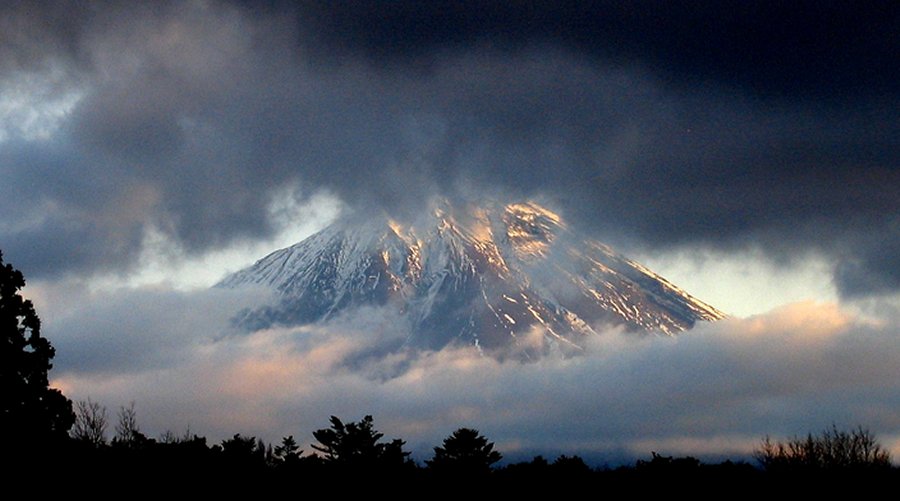MessageToEagle.com – On December 16, 1707, Mount Fuji – Japan’s tallest mountain erupted.
It was the last confirmed eruption of Mount Fuji, the highest volcano and highest peak in Japan, which is still an active volcano today.
Mount Fuji’s last eruption ejected tons of tephra into the atmosphere. Tephra includes all solid volcanic material—not lava or volcanic gas. Tephra released by the 1707 eruption of Mount Fuji (called the Hoei eruption) included volcanic ash and volcanic rock such as pumice and scoria.
The tephra was so thick that residents of the city of Edo (now known as Tokyo, more than 100 kilometers (62 miles) away) had to use candles in the middle of the day.
Although there were no deaths directly associated with the Hoei eruption, many people did lose their lives as a consequence of Mount Fuji’s volcanic activity.
Damage to nearby homes and the tephra fallout reduced agricultural productivity in the region, causing many people to starve.
MessageToEagle.com
Expand for referencesReferences:







